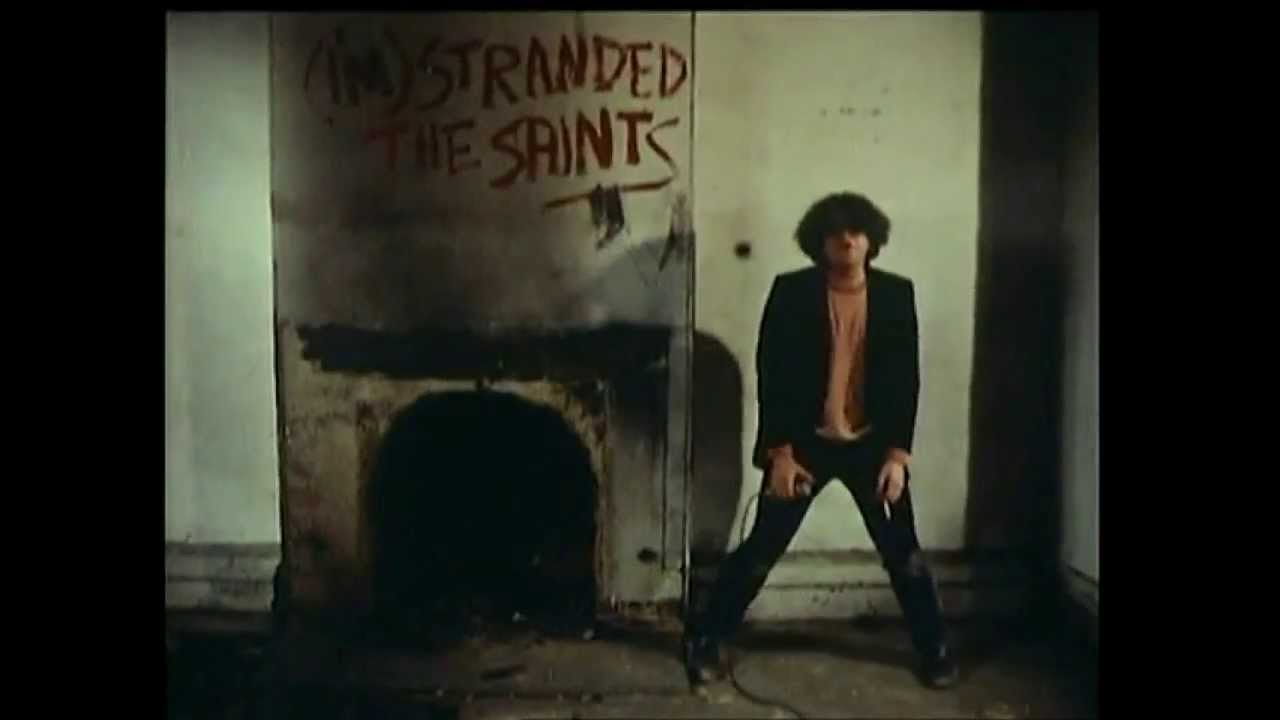Feature Song: (I'm) Stranted by The Saints (September, 1976/Fatal Records/Brisbane, Australia)
The United Kingdom was never immune from the kind of disillusionment that struck American youth in the latter half of the 20th century. Like the Americans, young people in Br*tain were coming of age in a world with fewer and fewer options. The economy was slowing down, cost of living was going up, the Empire was slowly falling apart, and worst of all, everyone was subject to the draconian class system. There had been a hippie movement in Blighty, but where America's counterculture was driven by the works of the Beat Generation, UK hippies were mostly inspired by Lord Of The Rings. They saw themselves as the hobbits, little people drafted into a conflict with the forces of industry and warfare. Their music reflected this, with plenty of Tolkien references in the early work of Pink Floyd, Led Zeppelin, and Tyrannosaurus Rex. But by the mid 70s, that was all over. Psychedelia had been subsumed by Progressive Rock and Hard Rock devoured all the Blues Rock giants. Glam presented a way forward with its unpretentious sound, but the look was just too....well, gay for conservative Britain.
While a scene had developed in America around the practice of starting a band with your friends in the family garage, most Brts didn't have the luxury of garage. Instead, Brtish garage rock takes the form of Pub Rock. These were bands that rebelled against the overproduction of progressive rock and the campiness of the glam rock. As such, the biggest venues they would ever play were pubs and nightclubs. Leaders in this scene were Dr Feelgood, Kilburn and The High Roads, and Pink Fairies. Record labels sent scouts out to see these bands, thinking they might find the next Beatles or Rolling Stones, but instead they found a bunch of shaggy, dirty, hippie types who wanted nothing to do with mainstream success. When the major labels turned away, the artists began establishing their own labels like Stiff and Chiswick Records. This turned out to be a big deal for the small labels. Mainstream rock had very high production values, and required about 20 000 albums sold in order to recoup the money spent on recording. Pub rockers only wanted to capture their live sound on record, meaning the label only had to move 2000 copies in order to turn a profit.
As part of the Br*tish Commonwealth, many of these records found their way to Australia. There, they would go on to influence a growing number of rock bands serving a growing number of live venues. Thanks to the repeal of various laws relating to the sale of alcohol, the number of licensed venues was expanding rapidly, and the new pubs and nightclubs found that live music would pack in the crowds. This practice became so profitable that there were often no cover charges to see these bands, who were becoming genuinely famous in Australia. Leaders of the scene were Billy Thorpe & The Aztecs , Blackfeather , and Buffalo. Oh and there was this little band named after a sticker on a vacuum cleaner. Maybe you've heard of them.
The band I want to talk about the most today, however, are The Saints. who came together in 1973 as Kid Galahad and The Eternals. They grew up with all the same stuff as the other Australian youth, like the Easybeats and Bee Gees and various Br*tish and American artists . However, sometime around the start of the 70s, they got their hands on some of The Stooges and MC5. In '74 they changed their name to The Saints after pulp fiction character The Saint. They also took up a faster tempo than anybody in their circle had played in. Asked about it later, guitarist Ed Kuepper said "We were nervous playing in front of live audiences, so we played faster." With their supersonic speed and buzzsaw guitars, live performances by The Saints were often so raucous that police would shut them down.
In June of 1976, The Saints would record two songs "(I'm) Stranded" and " No Time." While the audiences at their shows loved their music, record labels had little time for The Saints. Unable to find a record label who'd sign them, The Saints decided to take the DIY approach and form not only their own label (Fatal Records) but their own promotion company (Eternal Promotions). They sent the single to radio stations and magazines around the country, to little interest. Things started to pick up when they sent the discs to England, though. Sounds magazine reviewer John Ingham became instantly fascinated with the single, naming it "Single of this week and every other week." The single was picked up by various Br*tish indie labels, and soon enough EMI's head office in London was calling their office in Brisbane with an order to sign this new band. From September to December 1976, this single was the hottest thing in England...
Next Time: The 2 Minutes That Changed England Forever


